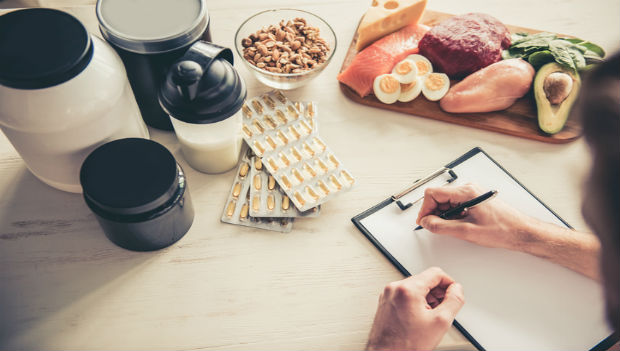
Swimming is one of the best exercises to improve cardiovascular health and build strength in a low impact environment. As fun as swimming can be with a floaty and a beer, when you are swimming to train for a triathlon, it is physically demanding. Just like every other discipline, you need to replenish and refuel after a workout.
Triathlon Events Near You
There are four factors you should take into consideration for fueling after your swim.
1. What was the duration and the intensity? The longer and harder the swim, the more you need to hydrate and eat after you finish with your workout.
2. What can you stomach? Eat what your body can tolerate. Liquids are best since they can be absorbed quicker by the body and digested easily.
3. What is accessible? Make something that is easily transportable and won't get soggy at the pool.
4. What do you have planned for tomorrow? Your post-workout meal help you recover for your next workout. This is where the nutritional composition and timing of the meal matter.
Guidelines for Refueling
As a swimmer and athlete, you should keep these guidelines in mind when refueling. Though you may not feel like drinking water during the workout, keep hydrated--that doesn't include the chlorinated pool water you may accidentally take in. After you finish your training session, you might be ravenous. In a 2005 study published in the International Journal of Sport Nutrition and Exercise Metabolism, found that water temperature affects swimmers' appetites. The research participants that swam in cold water ate 40 percent more than the control group. So before you stuff your face with donuts and beer from sheer hunger, consider the following guidelines.
Eat Carbs
No matter the diet fad, carbs are not the enemy; as a swimmer, you need them. Glycogen is the body's preferred source of energy during moderate- to high-intensity exercise. To adapt and recover, you'll need to refuel with carbohydrates.
Add Some Protein
Be sure you have a 3:1 or 4:1 carb to protein ratio. After a hard swim, you need to replenish your glycogen stores and rebuild muscle. A study conducted in 2014 found that ingestion of protein post-workout stimulates muscle protein synthesis and inhibits protein breakdown. Get in some quality carbs like rice or sweet potato with a happy helping of protein like chicken or whey powder.
Eat Enough Calories and Replace Fluids
A study published in the Journal of Sports Science & Medicine recommends a carbohydrate intake of 1.2 to 1.5 grams per kilogram of body weight. If you plan to eat a meal with carbohydrates and protein, the same study recommended 0.8 grams per kilogram for carbs and 0.2 grams per kilogram for protein of body weight. For rehydration, drink between 12 to 24 ounces for every pound of body weight you lost during exercise. If you use a sports drink to replace electrolytes, count those as your carbs.
Time Consumption Based on Next Workout
Most research agrees the sooner you refuel the better, but the consensus appears to be within 30 minutes of activity. Restoring glycogen as quickly as possible is more important if you have a workout in less than 8 hours. The best way to do this is high-glycemic foods and is more effective in small feedings over 4 hours. If you have more time to recover, timing is not as important.


